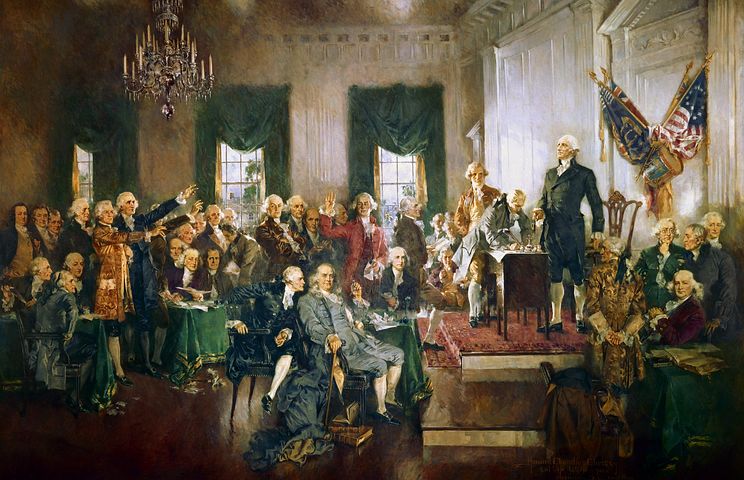“I plead the fifth.” You may have heard that phrase in a movie, on TV, or even in a real court room setting before. But what does plead the fifth mean? Where does this phrase come from? Well, we’ve covered a lot of courtroom jargon recently, but there’s always more to learn. Furthermore, pleading the fifth is actually a constitutional right that you have. And few things are more important than knowing your legal rights. So, in this week’s blog, we’ll answer the question, “What does plead the fifth mean?”
The US Constitution
First, as we mentioned above, pleading the fifth expresses a right you have thanks to the federal constitution. To explain, “the fifth” in that phrase refers to the fifth amendment in the US Constitution. Here’s what the fifth amendment says:
“No person shall be held to answer for a capital, or otherwise infamous crime, unless on a presentment or indictment of a Grand Jury, except in cases arising in the land or naval forces, or in the Militia, when in actual service in time of War or public danger; nor shall any person be subject for the same offence to be twice put in jeopardy of life or limb; nor shall be compelled in any criminal case to be a witness against himself, nor be deprived of life, liberty, or property, without due process of law; nor shall private property be taken for public use, without just compensation.”
This amendment defines the question “what does plead the fifth mean?”
What Does Plead the Fifth Mean in Simple Terms?
Now, that’s one long sentence written in an old-fashioned way. Furthermore, it talks about numerous rights we have as US citizens, including:
- The right to trial by jury
- Prohibiting double jeopardy (trying someone for the same offense twice)
- The right to due process
- Protection against civil asset forfeiture (prevents the government from taking your property without legal reason)
However, we’re particularly interested in the phrase “nor shall be compelled in any criminal case to be a witness against himself.” Here, the fifth amendment protects you from having to testify against yourself in court. In other words, “To plead the fifth means to refuse to answer a question, especially in a criminal trial, on the grounds that you might incriminate yourself.”
What Does Plead the Fifth Mean in the Courtroom?
Third, how does this play out in court? If you’re the defendant in a criminal case, the fifth amendment means you do not have to testify in court. Moreover, if you’re called to the witness stand in a case, and an attorney asks you a question in which your honest answer will make you sound guilty of a crime, you can say, “I plead the fifth.” For example, if an attorney asks you, “Were you present when [this crime] happened?” You can reply, “I plead the fifth.”
Hire Mark Catanzaro for Your Attorney
There’s plenty more we’ll discuss about the fifth amendment in the future. For now, consider hiring Mark Catanzaro as your defense attorney. Contact his offices today!
